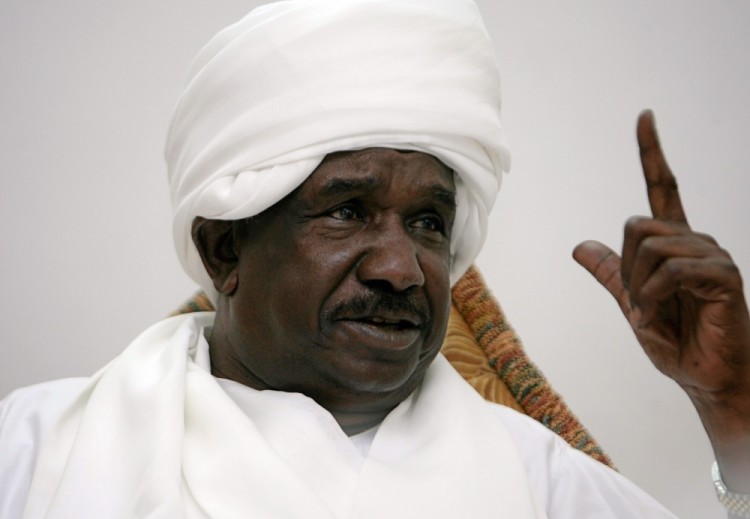
The mandate of the Arab League monitoring mission in Syria is set to end and the controversial head of mission, Sudanese General Mustafa al-Dabi, is said to be finalizing a report on the violence in the country to be submitted to a meeting of Arab League foreign ministers.
While Sudan’s Foreign Minister Al Ahmed Karti claims the Arab League monitors “are doing fine” the United Nations and many human rights organizations, including the Enough Project, have noted concern. Since the arrival of the mission on December 26, the United Nations has estimated that 400 people have been killed, the vast majority being unarmed civilians. According to Human Rights Watch, attacks by the Assad regime on peaceful protesters have been reported every day since the Arab League observers arrived in Syria.
Much of the controversy has centered on the observer mission’s chief. General al-Dabi is the former head of Sudan’s military intelligence and is an ally and personal friend of President Bashir. Human Rights Watch describes the Sudanese intelligence agency run by General al-Dabi as “well known for serious abuses in Sudan.” His own clouded human rights record severely damaged the credibility of the mission, which many have argued has merely given the Assad’s regime diplomatic cover to continue carrying out the brutal 10-month crackdown in Syria that has resulted in the deaths of more than 5,000 people.
Enough’s own Omer Ismail was one of the first analysts to point out the hypocrisy of having the Sudanese general lead a team of human rights observers, saying “The whole situation shows that the Arab League was not serious about monitoring in Syria.” Ismail was quoted in over a dozen prominent media outlets including The Guardian, Global Post, CNN, Reuters, the Washington Times, Al Arabiya News, Africa Confidential, Khaleej Times, France24, and the National Post, among many others.
Soon observers themselves began to echo Ismail’s doubt about the validity and credibility of the mission itself. This video features an interview with former Arab League observer from Algeria, Anwar Malek, who described the observation mission as a “farce.” Malek said, "What I saw was a humanitarian disaster. The regime isn’t committing one war crime but a series of crimes against its people. Children are killed and they are starved and terrorised."
Another observer, who wished to remain unnamed, confirmed Malek’s assessment of the mission’s failure. “It is true, it is true. Even I am trying to leave on Friday. I'm going to Cairo or elsewhere… because the mission is unclear…. It does not serve the citizens. It does not serve anything.” He continued by saying, “There is oppression. There is strong oppression and there is suffering, a lot of suffering, more than you imagine.”
Enough’s expert Ismail noted, “Khartoum is in bed with the Syrian regime. This is a matter of dictators sticking together. By delaying the momentum of the Arab Spring, the Sudanese regime feels as if it is delaying what will happen in Khartoum.” Ismail’s analysis was confirmed by another former observer who told BBC that the Arab League “worked for the Assad system and not to prevent the massacre of civilians.”
Following up with him at Enough, Ismail relays the bitter disappointment in the Arab League’s inability to work for the people, rather than the governments, it represents:
The observation mission in Syria is the first of its kind for the Arab League and should have been more credible and the personnel should have been vetted properly to silence the cynics in the region. Among the Arab people, the Arab League has little respect; it is viewed as a club of dictators. The reputation of the Arab League hinges on the Syrian observer mission. They could have made it better.
It has become evident that the mission is not credible. The best thing to do is to send them home. The mission must leave Syria since the Arab League is full of credible people who could have lead the observers, and they picked al-Dabi. The mission must be cut short and [the situation in Syria] referred directly to the UN Security Council.
Yet, reports suggest that the Syrian government wants the monitors to stay, indicating that the mission has played into Assad’s hands rather than protect Syrian civilians from continued government-sanctioned violence.
As a Darfuri, Ismail has a poignantly personal take on the duplicity of the Arab League’s mission. “Darfuris are not surprised. They view the Arab League as supporting the genocidaires in Khartoum, so what is new about supporting another dictator? To [Darfuris] it fits the bill for the Arab League.”
At a recent conference focused on the doctrine of Responsibility to Protect, U.N. Secretary General Ban Ki-moon said the international community must focus on “how to prepare ourselves for the next test of our common humanity. We need not look far. That test is here—in Syria.” Unfortunately, as long as the Arab League mission, led by a man with his own dubious human rights record, remains an apparent fig leaf for the Assad regime, the international community might fail this test, just as the international community failed in Darfur.
Photo: Mustafa al-Dabi (AFP)

